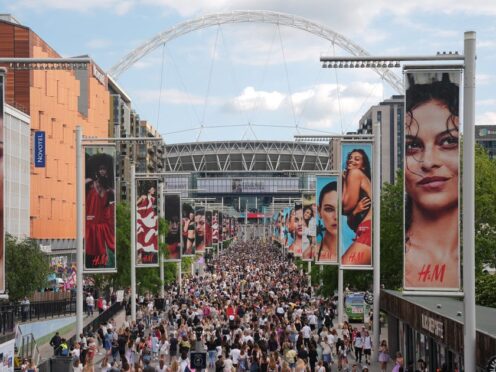Britons are predicted to spend an average of £3,322 per adult this summer on experiences such as holidays and live entertainment, a survey suggests.
Consumers are shifting spending away from retail and routine activities amid rising demand for experiences such as holidays, sporting events, concerts, days out and “competitive socialising” such as bowling, darts and mini golf, the study by Barclays found.
While the travel industry will absorb a significant share of the £178 billion that Britons will spend on experiences between June and September, UK businesses that provide consumers with activities such as staycations and entertainment will contribute an estimated £134 billion to the local economy, according to modelling by the Centre for Economics and Business Research (CEBR).
A survey for the study suggests almost half (46%) of the £3,322 average total will go towards holidays abroad (£906) and staycations (£615).
Other notable activities include live entertainment (£435), attending sports events (£295), and trips to the seaside (£143).

Those aged 18 to 34 expect to spend £5,531 on average, while over-55s will spend an average of £2,123.
Some 57% said they would rather spend money on a good experience than on buying material possessions, up five percentage points on 2018.
Almost two thirds (63%) would rather tell others about something they have experienced rather than something they have bought.
Similarly, 44% are actively seeking out new and unique experiences to make the most of the summer, rising to 61% of 18 to 34-year-olds.
According to Barclays data, annual spending on entertainment and travel has increased by 6.5% and 11.6% respectively on last year, outpacing the 3.4% growth in non-essential spending.
In particular, spending on shows and concerts is up 4.8% year-on-year, with a previous Barclays report finding that Taylor Swift fans attending the Eras Tour are predicted to spend a total of £848 on average per ticketholder to see her perform.
A quarter of consumers (25%) say they plan to spend more on experiences and events than last year.

Dr Peter Brooks, chief behavioural scientist at Barclays, said: “The excitement of buying new furniture, a TV or smartphone tends to disappear relatively quickly as those items get normalised into our everyday lives.
“However, the memories created from spending on experiences, especially when it’s with family or friends, has been linked to longer-term boosts to happiness as the memories created live on when we reminisce about those shared moments.
“We’re witnessing a long-term behavioural shift that will see experiences like travel and live entertainment take up a greater share of our discretionary spending, certainly this summer but also into the foreseeable future.”
Separate data from Mastercard suggests 63% of Britons are planning to spend money on travel and tourism this year, as well as food-related experiences (41%) and live music (39%).
The survey of 1,000 UK adults also found 37% would spend money on wellness experiences, with 30% spending money on theatre trips.
Natalia Lechmanova, chief economist for Europe at the Mastercard Economics Institute, said: “As headwinds from high inflation and high interest rates gradually recede, consumers are set to deploy their stronger purchasing power on discretionary spending.
“Excitement driven by prominent events such as global sporting competitions, music artist tours and international film festivals coming to Europe this year are likely to keep the spend on experiences high.”
Opinium surveyed 2,000 UK adults for Barclays between April 17-22.
